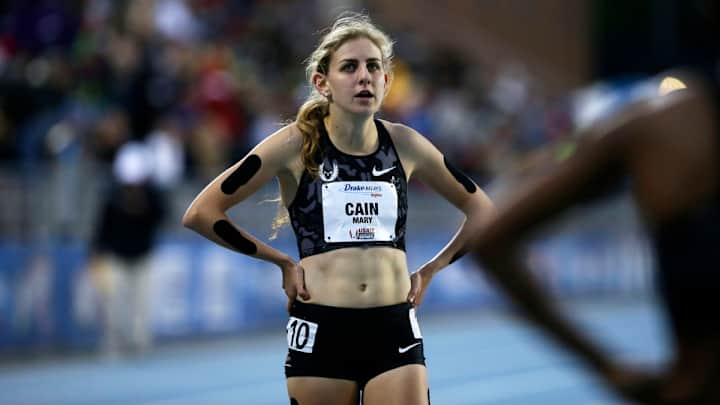Mary Cain Speaks Out Against Nike and Coach Alberto Salazar Over Emotional, Physical Abuse

Former high school track phenom Mary Cain has broken her silence on her former coach Alberto Salazar and her treatment as a member of the Nike Oregon Project.
"I joined Nike because I wanted to be the best female athlete ever," Cain says in an Op-Ed video produced by the New York Times' Lindsay Crouse. "Instead, I was emotionally and physically abused by a system designed by Alberto and endorsed by Nike."
"I joined Nike because I wanted to be the best female athlete, ever. Instead, I was emotionally and physically abused by a system designed by Alberto and endorsed by Nike," says Mary Cain. https://t.co/CzGsVRQD0m pic.twitter.com/XymyuD5dQw
— New York Times Opinion (@nytopinion) November 7, 2019
In the seven-minute video and accompanying piece, Cain says she was pushed by Salazar and his assistant coaches to get thinner and even publicly called her out for her weight after a track meet in 2015. Cain broke five bones and did not get her period for three years while training under Salazar.
"He would usually weigh me in front of my teammates and publicly shame me if I wasn't hitting weight," Cain said. "He wanted to give me birth controls and diuretics...the latter of which isn't allowed in track and field."
Cain burst onto the scene as a high school star from Bronxville, N.Y., in 2011 when she broke the freshman 1,500-meter record in 4:17.84. 2013 was a breakout season as she set U.S. junior records in the two-mile and 1,500 meters in addition to high school records in the 800 and 5,000 meters. Cain's rise to stardom was profiled by Sports Illustrated in July 2013. She decided to forego her NCAA eligibility to sign a professional contract with Nike and the Oregon Project. Under Salazar, she won two national titles, reached the 2013 IAAF World Championship final in the 1,500 meters, lowered her personal best to 4:04.62 and won a gold medal in the 3,000 meters at the 2014 World Junior Championships.
Despite the success, Cain revealed on Thursday she battled depression that led to cutting herself and suicidal thoughts. She says she informed Salazar that she was cutting herself in 2015 to no action from the coach.
Cain announced she was leaving the Oregon Project and Salazar in Oct. 2016 and continued training as a professional runner from home in New York. From 2016 to 2019, she barely raced.
In late September, the United States Anti-Doping Agency banned Salazar four years for violating anti-doping rules. He is appealing the decision. Nike president Mark Parker issued a statement saying USADA's report found no evidence of performance-enhancing drugs being used on or by Salazar's athletes and would support him in his appeal process.
The World Anti-Doping Agency announced that they are also investigating Salazar and his former athletes.
Salazar denied Cain's claims to the New York Times and said that he "supported her health and welfare." Nike did not respond
At the end of the Times' video, Cain calls for change at Nike and within the sport.
"I got caught in a system designed by and for men which destroys the bodies of young girls. Rather than force to fend for themselves, we have to protect them."
Last month, Nike shuttered the Oregon Project just days before the Chicago Marathon. The team had been started by Salazar in 2011.
Pete Julian, who was an assistant coach under Salazar, will continue to coach former Oregon Project athletes but no group or team has been announced. Julian was an assistant with the team while Cain was a member.
On Oct. 23, Julian wrote on Instagram: "I don't regret one minute of my time with the NOP the past seven years. Every medal, championship, and record were the real deal. Not a single doubt in my mind. Love goes out to Alberto and his family and for those that have stood by their side through these past few years."
